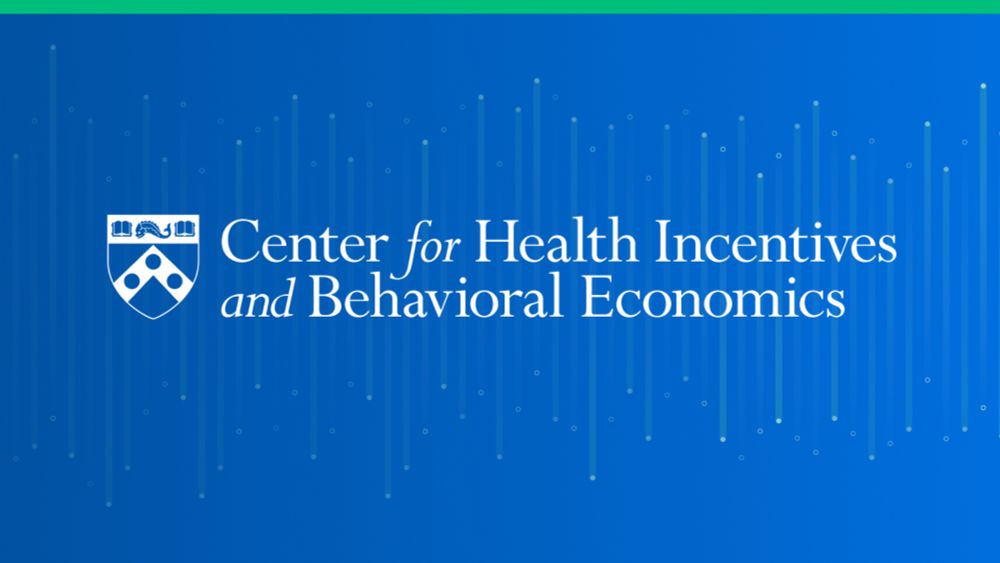Center for Health Incentives and Behavioral Economics
@pennchibe.bsky.social
2.9K followers
330 following
140 posts
The University of Pennsylvania's Center for Health Incentives and Behavioral Economics (CHIBE) is the leading scientific organization using behavioral economics to improve health. https://chibe.upenn.edu/
Posts
Media
Videos
Starter Packs
Reposted by Center for Health Incentives and Behavioral Economics
Reposted by Center for Health Incentives and Behavioral Economics
Reposted by Center for Health Incentives and Behavioral Economics
























